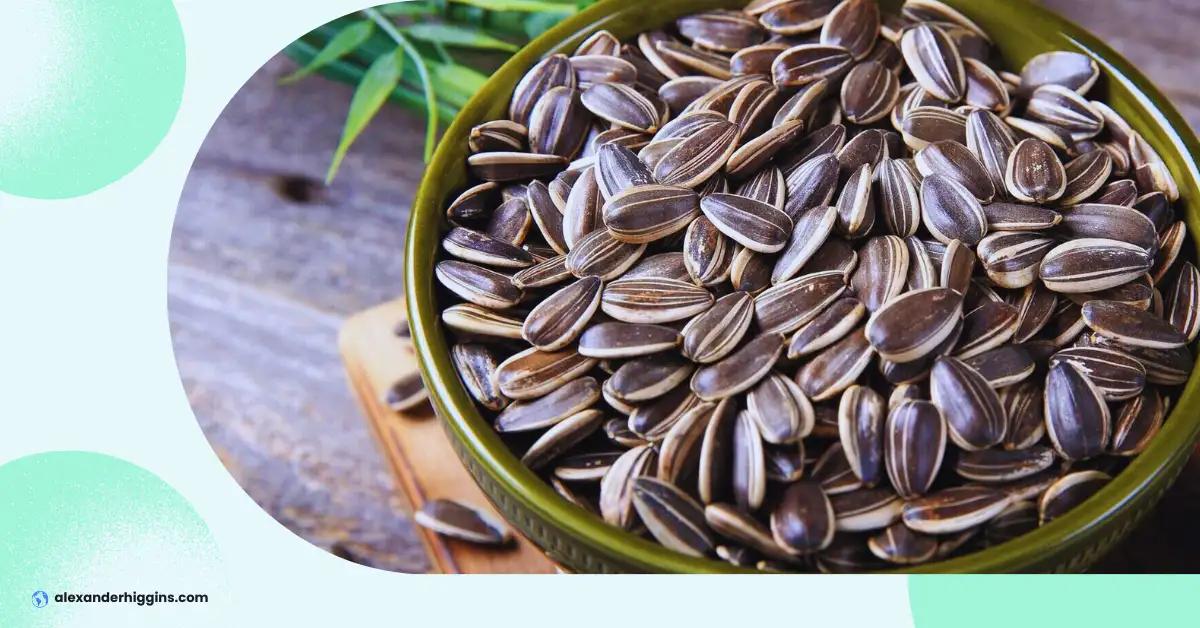Sunflower seeds are a popular snack all around the world, enjoyed for their nutty flavor and satisfying crunch. While most people discard the hard outer shell after extracting the edible seed within, some individuals choose to consume the shells as well. But is this practice safe? In this article, we will explore the pros and cons of eating sunflower seed shells, examining their potential health risks and alternative uses.
What Are Sunflower Seed Shells?

Sunflower seed shells, also known as hulls, are the tough outer covering that protects the edible seed kernel inside. These shells are composed primarily of cellulose, a type of indigestible plant fiber. They also contain small amounts of other compounds, including lignin, minerals, and trace amounts of protein.
Is it safe to eat sunflower seed shells?
Sunflower seed shells are non-toxic and generally safe for consumption. Although they can be eaten, many opt to discard them because of their resilient and fibrous consistency, which may not be easily digested and could lead to discomfort or digestive troubles, particularly if consumed excessively.
Nevertheless, some people derive pleasure from consuming the shells, finding that they impart a crunchy texture and additional flavor to the snacking affair. So, can you consume sunflower seed shells? Yes, but it’s crucial to exercise caution and chew them meticulously to minimize any potential risks.
What are the health risks of eating sunflower seed shells?
Despite their potential benefits, eating sunflower seed shells can pose certain health risks. Here are some concerns to consider:
Although consuming sunflower seed shells is generally considered safe, there are several potential risks to be aware of. One primary concern is the possibility of choking, particularly if the shells are not chewed thoroughly. It’s crucial to exercise caution and take small bites to minimize this risk.
Additionally, another factor to consider is the potential presence of pesticides or contaminants on the surface of the shells. Sunflower seeds are often cultivated using pesticides, and residues of these chemicals may remain on the shells. To lower the likelihood of exposure to harmful substances, it is advisable to opt for organic or pesticide-free sunflower seeds.
1. Intestinal Blockage: The tough, fibrous nature of sunflower seed shells makes them difficult to digest, increasing the risk of intestinal blockages or impaction, particularly if consumed in large quantities.
2. Dental Damage: The hard texture of the shells can potentially damage tooth enamel or cause dental injury if not chewed properly.
3. Choking Hazard: Improperly chewed or swallowed whole, sunflower seed shells can present a choking hazard, especially for children or individuals with swallowing difficulties.
4. Digestive Discomfort: Consuming large amounts of indigestible fiber from sunflower seed shells can lead to bloating, gas, and abdominal discomfort in some individuals.
Alternative uses for sunflower seed shells
Instead of consuming sunflower seed shells, there are several alternative uses that can make better use of this byproduct:
1. Composting: Sunflower seed shells are biodegradable and can be added to compost piles, providing a valuable source of carbon for the composting process.
2. Mulch: Crushed or shredded sunflower seed shells can be used as a mulch material for gardens, helping to suppress weeds and retain moisture in the soil.
3. Fuel: In some parts of the world, sunflower seed shells are used as a biomass fuel for heating or generating electricity.
4. Pet Bedding: The absorbent nature of sunflower seed shells makes them a suitable bedding material for small pets, such as hamsters or gerbils.
Can you die from eating sunflower seed shells?
While consuming large quantities of sunflower seed shells is not recommended, it is unlikely to be fatal for most individuals. However, in extreme cases, the shells could potentially cause a severe intestinal blockage or perforation, which could be life-threatening if left untreated.
Can you eat sunflower seed shells while pregnant?
There is no evidence to suggest that consuming sunflower seed shells poses any specific risks during pregnancy. However, as with any food item, it is advisable to consume them in moderation and to consult with a healthcare professional if you have any concerns or experience digestive discomfort.
Also Read: Blueberry Lemon Chia Seed Pudding – Benefits & Recipe Explored
Conclusion
While sunflower seed shells are not toxic, they are generally considered indigestible and offer little nutritional value. Consuming them can pose risks such as intestinal blockages, dental damage, choking hazards, and digestive discomfort. Instead of eating the shells, it may be more beneficial to explore alternative uses, such as composting, mulching, or using them as pet bedding.
If you do choose to eat sunflower seed shells, it is important to do so in moderation and to be mindful of any potential adverse effects. Ultimately, the decision to consume sunflower seed shells should be based on individual preference and a consideration of the potential risks and benefits.
Frequently asked questions
A. Sunflower seeds have a tough outer shell, making them difficult for humans to digest. However, consuming hulled seeds, which have had the outer shell removed, can alleviate this issue.
A. Chewing sunflower seeds has become popular among baseball players, particularly in the 1950s and 1970s. They do so to keep their mouths active during games and prevent discomfort from the dry dirt on baseball fields. Additionally, sunflower seeds offer valuable nutrients and can help reduce anxiety and stress.
A. Some individuals may experience allergic reactions after consuming sunflower seeds. Symptoms can range from mild itchiness in the mouth to more severe reactions such as swelling of the face, lips, or tongue, stomach pain, vomiting, or difficulty breathing. Immediate medical attention is necessary for severe cases.
A. Yes, aside from chewing them directly, sunflower seeds can be incorporated into various dishes such as salads, granola, trail mix, and baked goods. You can also enjoy sunflower seed butter or use sunflower seed oil for cooking.
References
- Vitamin E. (2021).
https://ods.od.nih.gov/factsheets/VitaminE-HealthProfessional/ - Premnath A, et al. (2016). Mapping quantitative trait loci controlling oil content, oleic acid and linoleic acid content in sunflower (Helianthus annuus L.).
https://link.springer.com/article/10.1007/s11032-016-0527-2





